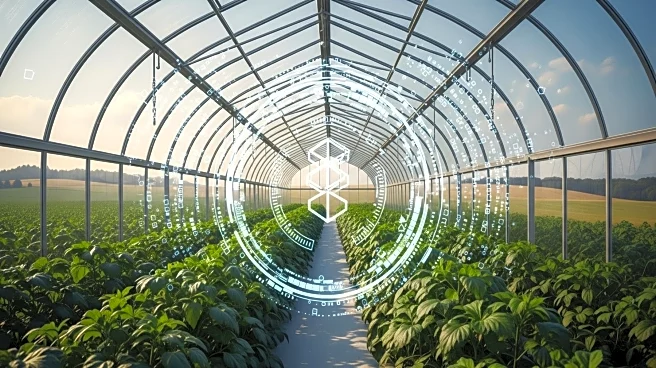What's Happening?
The U.S. agriculture sector is increasingly adopting blockchain technology to improve transparency, traceability, and efficiency across the food supply chain. Blockchain systems, such as IBM Food Trust, are being used to track the origins of fresh produce, ensuring rapid recall actions and enhanced food safety. The technology also supports fair trade, streamlined payments for farmers, and better management of agricultural logistics and sustainability initiatives. The market for blockchain in agriculture is projected to grow significantly, reaching $5,570.71 million by 2032, driven by consumer and corporate demand for decentralized records of ethical and environmental compliance.
Why It's Important?
The integration of blockchain technology in agriculture represents a significant shift towards more secure and transparent food supply chains. This development is crucial for improving food safety and reducing fraud, which are major concerns in the industry. By providing immutable records, blockchain can enhance consumer trust and support sustainability efforts. The projected growth of the blockchain market in agriculture indicates a strong demand for innovative solutions that address these challenges. Companies investing in blockchain technology stand to benefit from increased efficiency and competitiveness in the global market.
What's Next?
As blockchain adoption in agriculture continues to grow, stakeholders can expect further advancements in supply chain transparency and efficiency. The technology may lead to new standards for food safety and sustainability, influencing regulatory policies and industry practices. Companies involved in blockchain development, such as IBM and TE-FOOD International GmbH, are likely to expand their offerings and partnerships to capitalize on this trend. The ongoing demand for ethical and environmentally compliant products will drive further innovation and investment in blockchain solutions.









